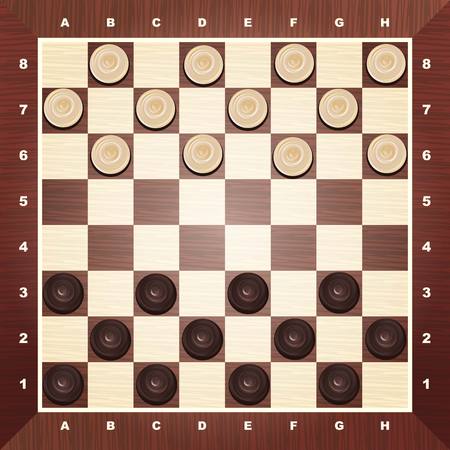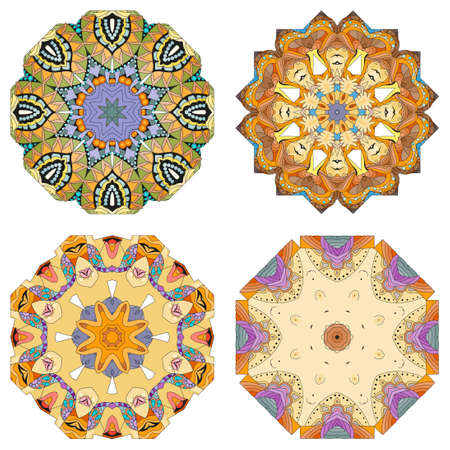Introduction: Feng Shui in Contemporary Britain
Feng Shui, the ancient Chinese art of harmonising one’s environment, has found an unexpected yet intriguing home in modern Britain. Once viewed as an exotic import, its principles have gradually woven themselves into the fabric of British interior design and lifestyle choices. From stately homes in the countryside to contemporary flats in bustling London, Britons are increasingly exploring how spatial arrangement and energy flow might influence their wellbeing. This growing interest is not merely aesthetic; it reflects a broader curiosity about holistic living and Eastern philosophies amidst the UK’s rich cultural tapestry.
Yet, as British practitioners and enthusiasts adapt Feng Shui to suit local tastes and architectural traditions, a new debate emerges: should one rely on time-honoured tools or embrace digital innovation? The compass—central to accurate Feng Shui assessments—now exists in both traditional magnetic forms and as sophisticated digital apps. To understand which might serve best within a uniquely British context, it is essential first to appreciate how Feng Shui’s legacy has evolved on these shores. From Victorian fascination with all things Oriental to today’s mindful living movements, Britain’s relationship with Feng Shui sets the stage for a meaningful comparison between old-world craftsmanship and cutting-edge technology.
Traditional Feng Shui Compasses: Heritage and Methodology
The traditional Feng Shui compass, known as the luopan, is a remarkable blend of art, culture, and meticulous craftsmanship. Originating in ancient China, the luopan has been used for centuries by Feng Shui practitioners to determine auspicious directions and placements based on geomantic principles. The construction of a luopan is an intricate process, often involving skilled artisans who inscribe dozens of concentric rings onto a brass or wooden plate. Each ring contains symbols and formulas derived from classical Chinese metaphysics.
In a British context, interpreting and using the traditional luopan presents both opportunities and challenges. British architecture is deeply influenced by historical periods such as Georgian, Victorian, and Edwardian eras, each with distinctive layouts, materials, and orientations. Unlike Chinese homes that frequently align with cardinal directions and open landscapes, British properties often reflect urban planning patterns or respond to local geography such as rolling hills or rivers. This unique setting requires nuanced adaptation when applying traditional Feng Shui methods.
| Aspect | Chinese Context | British Context |
|---|---|---|
| Architectural Alignment | Aligned with cardinal points | Often irregular due to historical development |
| Material Considerations | Wood, brick, tile | Stone, brick, slate |
| Landscape Features | Paddies, mountains, rivers | Parks, meadows, urban greenery |
The methodology of using a luopan involves not only accurate compass readings but also interpretation of local site features. For example, in Britain’s older homes with thick stone walls and leaded windows, practitioners may need to account for magnetic interference or nonstandard building orientations. The luopan’s readings are then integrated with an understanding of the property’s history—such as whether it was once part of an estate or built near ancient ley lines—to ensure relevance within the local context.
This rich heritage approach values both technical precision and cultural sensitivity. While tradition underpins the use of the luopan, successful application in Britain often depends on thoughtful translation between Eastern theory and Western practice.

3. Digital Feng Shui Compasses: Modern Technology Meets Ancient Wisdom
The digital age has ushered in a new era for feng shui enthusiasts in the UK, where tradition intersects seamlessly with technology. Smartphone apps and digital feng shui compasses are now widely available, putting centuries-old wisdom at the fingertips of British users. These tools not only offer an accessible entry point for those curious about feng shui, but they also cater to a tech-savvy audience seeking instant results without the need for specialist equipment or extensive training.
One of the primary appeals of digital feng shui compasses is their user-friendly interface. Whether you’re a homeowner in Surrey or a young professional in Manchester, these apps typically provide clear instructions, easy-to-read compass readings, and even tailored recommendations based on your location and property layout. Features such as augmented reality overlays and interactive floor plans allow users to visualise energy flows in real time—an advantage that traditional compasses cannot easily match.
Furthermore, digital tools are adept at adapting ancient Chinese principles to fit the unique characteristics of British homes, which often differ architecturally from those found in East Asia. Many apps include settings that consider local building materials, climate factors, and even common orientations of British properties, helping users apply feng shui concepts meaningfully within a familiar context. This localisation ensures that feng shui practice remains relevant, respectful, and effective across cultural boundaries.
Accessibility is another significant benefit. While traditional luopan compasses can be costly and require expertise to interpret accurately, digital versions are often free or affordable and provide step-by-step guidance. This democratization of feng shui knowledge has made it possible for a broader spectrum of Britons—from students renting flats in London to families renovating Victorian terraces—to explore and implement positive energy alignment in their living spaces.
In summary, digital feng shui compasses represent an innovative fusion of ancient wisdom with modern convenience. By leveraging technology, these tools make feng shui more approachable and adaptable for contemporary British lifestyles, ensuring its continued relevance amidst ever-changing domestic landscapes.
4. Practicality and Accuracy: Comparing the Two Approaches
When considering the effectiveness of traditional versus digital Feng Shui compasses in a British context, it is essential to weigh up their practicality and accuracy across the nation’s diverse architectural landscape. From centuries-old cottages in the Cotswolds to modern high-rise flats in London, the environments in which these tools are used can significantly affect their performance.
Reliability in British Homes
Traditional Feng Shui compasses, or Luo Pan, have stood the test of time, offering reliability rooted in craftsmanship. However, they require specialist knowledge and a steady hand—qualities that may be less accessible for beginners. British homes, particularly period properties with thick stone walls and irregular layouts, can sometimes interfere with magnetic readings, posing challenges for both traditional and digital devices.
Ease of Use: Tradition Meets Technology
Digital compasses, often integrated into smartphones or specialised apps, provide user-friendly interfaces suitable for those less versed in Feng Shui practice. Their ability to auto-correct minor misalignments and display readings clearly makes them appealing for users navigating awkward spaces found in many British properties.
| Traditional Compass | Digital Compass | |
|---|---|---|
| Reliability | High if used correctly; can be affected by local magnetic anomalies | Generally reliable; susceptible to electronic interference from household devices |
| Ease of Use | Requires expertise; manual calibration needed | User-friendly; automatic calibration features available |
| Accuracy in Period Homes | Potentially compromised by dense building materials | May experience signal loss or errors near metal structures |
| Suitability for Modern Flats | May struggle with electronic noise or limited space for alignment | Compact and easily usable even in confined spaces |
The Verdict on Accuracy Across Settings
While both traditional and digital compasses present certain limitations when faced with Britain’s architectural diversity, digital options tend to offer greater ease of use for novices and those living in contemporary settings. However, purists and professionals might still favour traditional Luo Pan for its depth and authenticity—provided they can mitigate potential interference from British building materials.
5. Cultural Compatibility and User Experience in the UK
In examining the cultural reception of traditional versus digital Feng Shui compasses within Britain, it is essential to acknowledge the nuanced perspectives and preferences that shape their adoption. Historically, British society has approached Eastern philosophies such as Feng Shui with a blend of curiosity and healthy scepticism. The traditional Feng Shui compass, or Luo Pan, carries an aura of mystique and heritage, which can be both intriguing and alienating to British users unfamiliar with its symbolism and operation. While some enthusiasts appreciate its authenticity and craftsmanship—qualities highly valued in British culture—others find it esoteric or inaccessible without expert guidance.
By contrast, digital Feng Shui tools have found a niche among younger generations and tech-savvy individuals who favour convenience, speed, and integration with modern devices. The digital format demystifies Feng Shui for many British users, offering intuitive interfaces, English-language instructions, and compatibility with smartphones or tablets. This accessibility aligns well with contemporary British lifestyles that prioritise efficiency and adaptability. However, sceptics may question the legitimacy of digital tools, perceiving them as lacking the gravitas of tradition or as mere novelties rather than serious instruments of spatial harmony.
User preferences in Britain often reflect broader trends towards practicality and design consciousness. Traditional compasses appeal to those who value ritual, tactile engagement, and the preservation of ancient customs—even if only as a symbolic gesture within their homes or offices. Meanwhile, digital versions attract individuals keen on experimenting with global practices but who demand straightforward, user-friendly experiences that fit seamlessly into busy urban routines.
Integration into British lifestyles also hinges on subtle adaptation: traditional Feng Shui may be embraced within certain architectural contexts such as Victorian terraced houses or modern flats, provided its principles are clearly explained and harmonised with local sensibilities. Digital tools excel here by providing tailored advice suited to British home layouts, climate considerations, and cultural habits—bridging East and West in a way that feels both novel and accessible.
Ultimately, both traditional and digital Feng Shui compasses face the challenge of overcoming initial scepticism while establishing relevance within Britain’s diverse cultural landscape. Success depends not only on tool efficacy but also on how comfortably they mesh with the values, aesthetics, and daily realities of British life.
6. Conclusions: Which Compass is More Effective in the British Context?
After exploring both traditional and digital Feng Shui compasses within a British context, it becomes evident that each tool offers unique advantages tailored to different needs and sensibilities. Traditional Luo Pan compasses, with their rich heritage and intricate symbolism, appeal to those who value authenticity and cultural depth. Their use encourages a hands-on approach, fostering a deeper connection with the historical essence of Feng Shui practice. However, the complexity of interpreting a Luo Pan may pose a challenge for beginners or those unfamiliar with Chinese metaphysics.
Conversely, digital Feng Shui compasses provide remarkable convenience and accessibility, particularly suited to the fast-paced lifestyle common in Britain’s urban centres. With user-friendly interfaces and integration with modern technology, these tools allow even novices to perform basic assessments with relative ease. The inclusion of features such as GPS localisation can also help adapt traditional principles to British architectural layouts and magnetic variations.
In summary, the most suitable choice depends largely on individual preference and lifestyle. Those seeking an immersive, traditional experience may favour the Luo Pan, perhaps consulting an experienced practitioner for guidance. Meanwhile, residents looking for practical solutions without steep learning curves might opt for digital alternatives.
Ultimately, blending elements from both approaches could offer the best of both worlds—preserving tradition while embracing innovation. British residents are encouraged to reflect on their personal values, spatial needs, and level of commitment before selecting the compass that will support their journey towards harmonious living.


